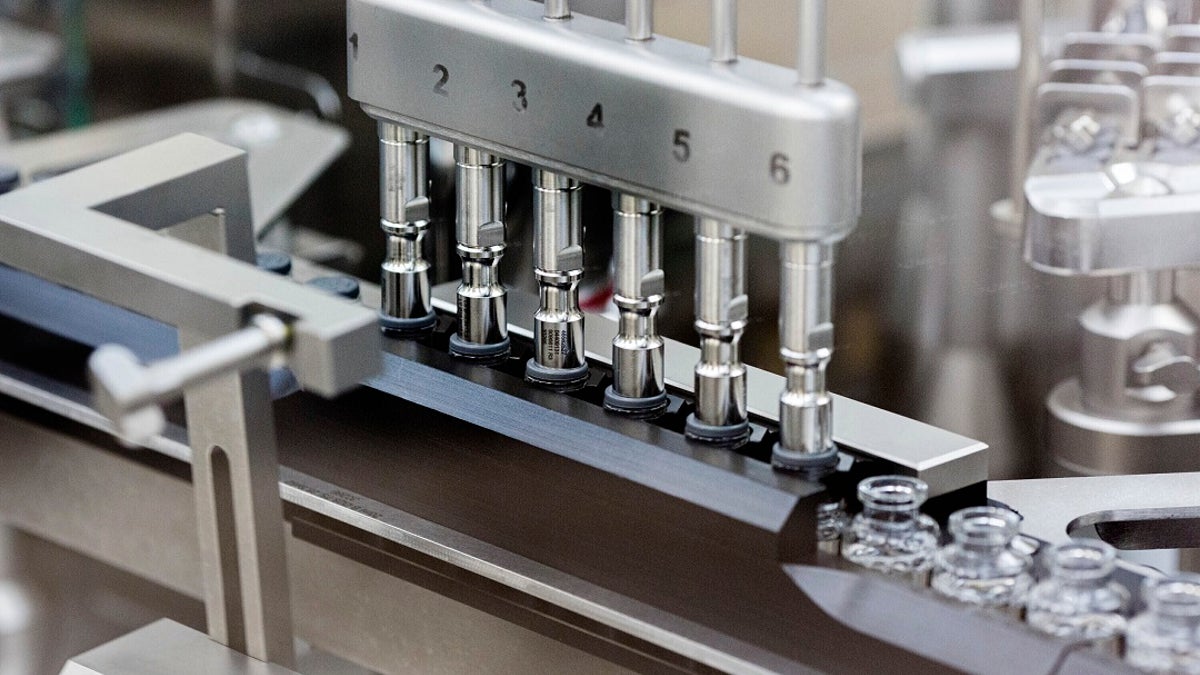Fox News Flash top headlines for May 6
Fox News Flash top headlines are here. Check out what's clicking on Foxnews.com.
Get all the latest news on coronavirus and more delivered daily to your inbox. Sign up here.
As the coronavirus pandemic continues into its sixth month with no cure, the maker of the recently approved drug remdesivir said it is working with companies to expand its manufacturing "through at least 2022."
In an open letter obtained by Fox News, Gilead Sciences said it is working with "leading chemical and pharmaceutical companies" to make sure remdesivir is available in Europe, Asia and the developing world.
"Gilead is in discussions with some of the world’s leading chemical and pharmaceutical manufacturing companies about their ability, under voluntary licenses, to produce remdesivir for Europe, Asia and the developing world through at least 2022," the company wrote. "The company is also negotiating long-term voluntary licenses with several generic drugmakers in India and Pakistan to produce remdesivir for developing countries."

In this March 2020 photo provided by Gilead Sciences, rubber stoppers are placed onto filled vials of the investigational drug remdesivir at a Gilead manufacturing site in the United States. (Gilead Sciences via AP)
MAN-MADE ANTIBODY 'NEUTRALIZES' CORONAVIRUS FOR FIRST TIME, STUDY SHOWS
Gilead, which is working to provide the technology for remdesivir production, added it is working with Medicines Patent Pool, "which Gilead has partnered with for many years, to license remdesivir for developing countries."
Gilead has previously said it would donate its available stock of the drug and is ramping up production to make more.
“Our existing supply, including finished product ready for distribution as well as materials in the final stages of production, amounts to 1.5 million individual doses,” Gilead CEO Daniel O'Day said in an open letter sent out last month. “We had estimated that this would be 140,000 treatment courses based on a 10-day treatment duration. The ability to shorten duration for severely ill patients means we can significantly increase the number of courses available, all of which Gilead has committed for donation.”
Remdesivir was recently approved by the FDA under its emergency use protocol for COVID-19 treatment after two separate studies, including one run by the National Institute of Allergy and Infectious Diseases (NIAID), showed promising results.
In an open letter last month, O'Day noted that in addition to the NIAID trial, a SIMPLE clinical trial of "severe" COVID-19 patients showed that a five-day treatment of remdesivir was just as effective as a 10-day treatment.
On Sunday, O’Day appeared on CBS’s “Face the Nation” and said the biotech intends to get the drug to coronavirus patients in the early part of this week.
The antiviral was previously used to treat Ebola patients and has been garnering massive attention as the world scrambles to contain the coronavirus pandemic. Experts, however, warn that people should not take the drug unless prescribed by a doctor.
The various trials of remdesivir have come under intense scrutiny.
In a recent post on the clinicaltrials.gov website, officials explained that the primary metric for the Adaptive COVID-19 Treatment Trial (ACTT) of remdesivir sponsored by the NIAID is patients’ time to recovery by day 29 of treatment.
EXPERIMENTAL CORONAVIRUS TREATMENT LERONLIMAB RESULTED IN 'REMARKABLE RECOVERIES,' DEVELOPER SAYS
The Washington Post reports that, previously, the trial’s primary metric was counting the number of people taking remdesivir who were kept alive on ventilators or died.
In a statement about the trial released on Feb. 24, the National Institutes of Health said that outcomes at day 15 of treatment were being scored on a seven-point scale ranging from fully recovered to death.
In the recent post, officials described the evaluation of patients using an eight-point scale, including death, need for ventilation, and recovery at day 15 as now a key secondary outcome of the trial.
CLICK HERE FOR COMPLETE CORONAVIRUS COVERAGE
As of Wednesday morning, more than 3.68 million coronavirus cases have been diagnosed worldwide, more than 1.2 million of which are in the U.S., the most impacted country on the planet.
Fox News' James Rogers contributed to this story.

